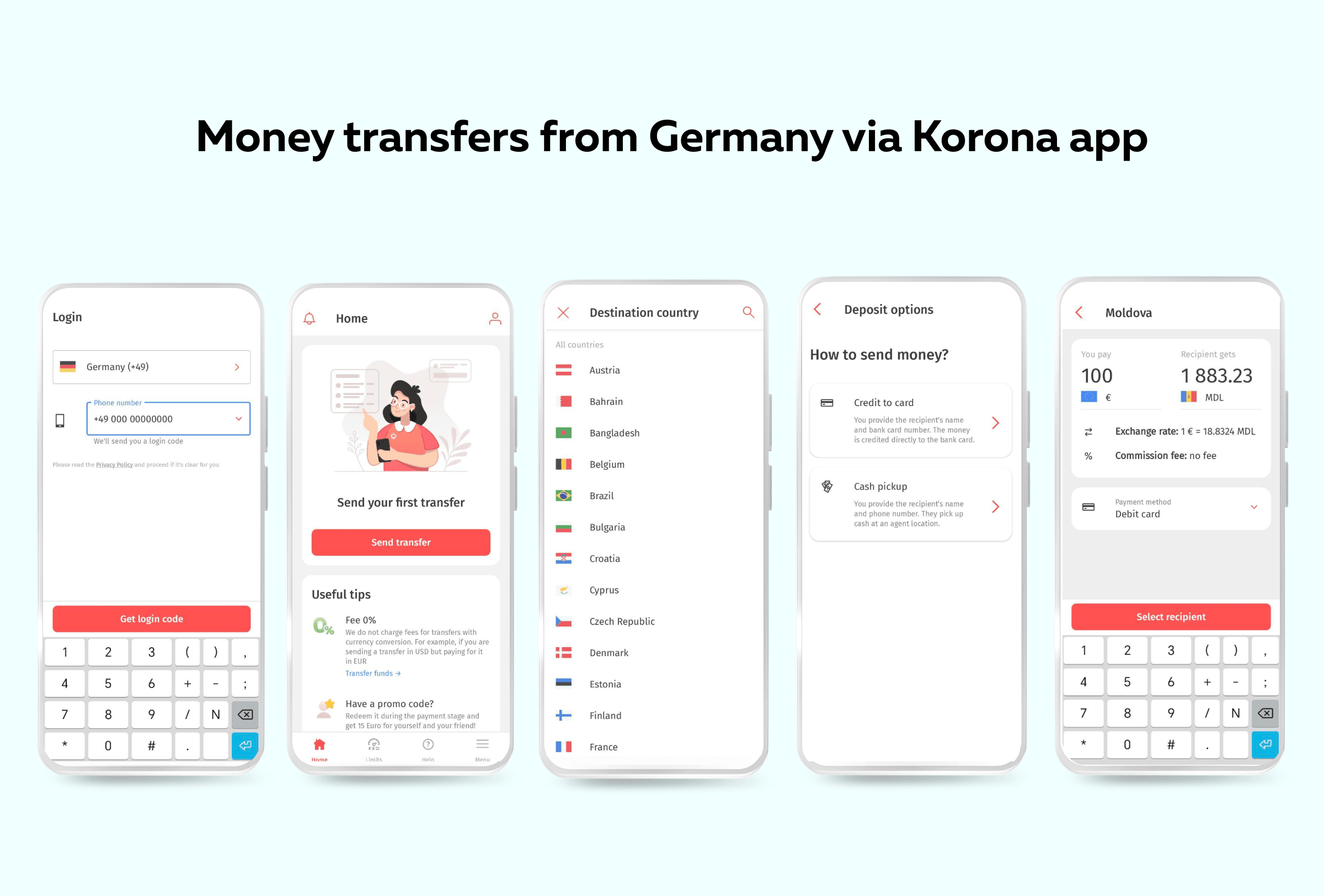Digital Nomad Visa in Europe
The term “digital nomad” emerged in the late 90s, but the true flourishing of this culture began in the second half of the 2000s.
The coronavirus pandemic has accustomed many companies to remote work, so when borders opened, many professionals decided they could regulate the distance between the office and their workplace themselves.
In this article, we will discuss what a Digital Nomad Visa is and in which European countries it can be obtained.
We previously discussed the recognition of higher education diplomas in Germany.

What is a Digital Nomad Visa?
A digital nomad is a professional who has the ability to work remotely and leads a mobile lifestyle. Typically, digital nomads are engaged in the IT sphere. However, this category can also include those who conduct their business online (such as psychologists, coaches, bloggers, etc.).
The Digital Nomad Visa allows foreign professionals to stay in the host country for a longer period than tourists and even to bring their family along.
The conditions for family members living under the visa may vary in different countries. For example, in Spain, the spouse traveling with the nomad has the right to work, and children can attend public schools, whereas Hungary does not allow the nomad to apply for residency with their family.
However, in any case, the digital nomad visa is a short-term document (usually up to 1 year with the possibility of extension) and does not imply further legalization in the host country. In other words, obtaining permanent residency or citizenship is not possible.
The nomad visa (freelancer visa) grants the foreigner the right to engage in remote work outside the country of citizenship. It can be seen as an alternative to temporary residence permits.
How to Obtain a Digital Nomad Visa
Digital Nomad Visa programs are gradually spreading worldwide. The candidate requirements may vary depending on the host country. The main criteria are as follows:
- The applicant must be over 18 years old.
- The applicant must be able to demonstrate a certain minimum monthly income (varies depending on the chosen country). Typically, the income requirement exceeds the country’s minimum wage by 2-3 times.
- The professional must be engaged in work that can be done from anywhere in the world for a company registered outside the host country, be self-employed abroad, or run a business.
- The applicant must possess private medical insurance.
- There must be a place to stay and reside for the entire duration of the visa.
- The applicant’s country of origin must meet the visa requirements.
- The applicant must have no criminal convictions.
Further criteria may vary. For example, in Spain, candidates must have a bachelor’s/master’s degree from a prestigious university, college, business school, or have at least 3 years of experience in the current field of work.
The documents required for obtaining a digital nomad visa are closely related to the specific requirements of each country, whether it’s Spain, Portugal, France, Italy, or any other. If the host country requires proof of onward travel after the visa expires, a ticket or other confirming document must be provided.
General list of documents for a digital nomad visa in Europe:
- Application for participation in the digital nomad program and paid government fee (approximately 110 euros).
- Photograph (color, passport-sized, on a light background).
- Passport — original and copy. Must be valid for at least one year and have at least 2 blank pages.
- Proof of income or financial status, such as a pay stub or bank statement.
- Private medical insurance valid for the entire duration of stay in the country.
- Proof of accommodation (lease agreement).
- Certificate of no criminal record.
This is not an exhaustive or final list of supporting documents. It is important to carefully study the visa requirements in the host country and ensure the availability of the necessary paperwork.
How to Apply for a Digital Nomad Visa
The process of applying for a freelancer visa will vary from country to country: conditions in Italy will differ from those in Norway.
Sometimes, candidates may be able to submit their application and paperwork online on the official government website. In other cases, it may be necessary to submit documents through the embassy or consulate of the host country. In some countries, it is permitted to enter on a tourist visa and then apply for the digital nomad status afterward.
If the official authority requires an in-person appearance, the applicant will need to attend an interview and submit the paperwork to the responsible officer.
Often, both options are available: applicants can apply online or through a competent authority.
What Happens Next?
After the applicant for the freelancer visa provides the necessary documents, the immigration, visa, or foreign affairs department of the host country will assess and process the application.
Upon reaching a decision, the competent authority notifies the applicant that their request has been reviewed. If the Digital Nomad Visa is rejected, the desired country can still be visited as a tourist by obtaining the appropriate visa for traveling abroad.
List of European Countries Offering Digital Nomad Visas in 2024
Over 60 countries worldwide formulate immigration policies, welcoming special visas for digital nomads. About 80% of the states on this list strive to process such applications within a month.
- Andorra
- Hungary
- Germany
- Greece
- Iceland
- Spain
- Italy
- Cyprus
- Latvia
- Malta
- Norway
- Portugal
- Romania
- North Macedonia
- Croatia
- Montenegro
- Czech Republic
- Estonia
Top Countries for Obtaining a Digital Nomad Visa
Let’s talk about the most popular/well-known places where digital nomads can relocate.
| Country | Minimum Monthly Income Threshold, € | Term of Validity, Years | Can Bring Family? | Additional Conditions |
|---|---|---|---|---|
| Croatia | 2,540 | 1 | Yes | Can only be extended six months after the expiration of the previous visa |
| Spain | 2,520 | 3, extendable up to 5 | Yes | - |
| Portugal | 3,040 | 2, extendable up to 5 | Yes (with accompanying visa) | Proof of tax residency (Portuguese Tax Identification Number — NIF) |
| Germany | Not specified* | 3 | No | Company must have clients in Germany and recommendations |
| Estonia | 4,500 | 1, extendable up to 1.5 | Yes | Not available to citizens of some countries |
| Greece | 3,500 | 2 | Yes | Can be obtained on site |
| Hungary | 2,000 | 1, extendable up to 2 | No | - |
Data is based on information from respective official websites and is accurate as of March 2024.
*There is no information on official resources, but according to some data, the minimum amount is around €9,000/year.
Money Transfers from Europe
While traveling around Europe, digital nomads stay connected not only with their families back home but also make friends from other countries. The mobile application Korona helps maintain relationships with loved ones from a distance.
Sending money as a gift, helping in difficult times, supporting with regular money transfers — these are the opportunities that Korona provides to its users.
- Available for sending to 50+ countries in Europe and Asia.
- Commission-free with currency conversion (euro to sum, euro to tenge).
- Receiving on a card or in cash.
- Sending anytime.
- Instant delivery.

You can download the Korona app from the App Store and Google Play.
In our blog, we write a lot about life and study in Europe. If you are interested in these topics, feel free to check out our other articles.